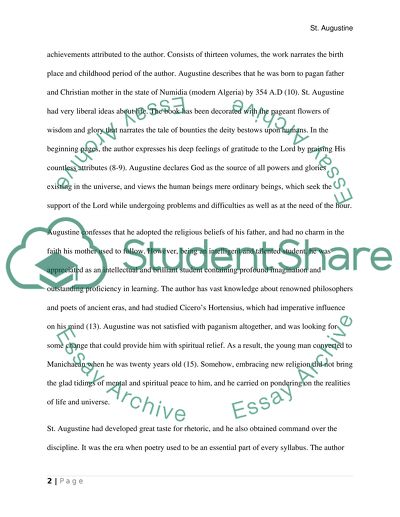Cite this document
(“Confessions by St. Augustine Book Report/Review”, n.d.)
Confessions by St. Augustine Book Report/Review. Retrieved from https://studentshare.org/history/1446974-1000-word-early-christian-church-history-book-review-of-st-augustine
Confessions by St. Augustine Book Report/Review. Retrieved from https://studentshare.org/history/1446974-1000-word-early-christian-church-history-book-review-of-st-augustine
(Confessions by St. Augustine Book Report/Review)
Confessions by St. Augustine Book Report/Review. https://studentshare.org/history/1446974-1000-word-early-christian-church-history-book-review-of-st-augustine.
Confessions by St. Augustine Book Report/Review. https://studentshare.org/history/1446974-1000-word-early-christian-church-history-book-review-of-st-augustine.
“Confessions by St. Augustine Book Report/Review”, n.d. https://studentshare.org/history/1446974-1000-word-early-christian-church-history-book-review-of-st-augustine.


